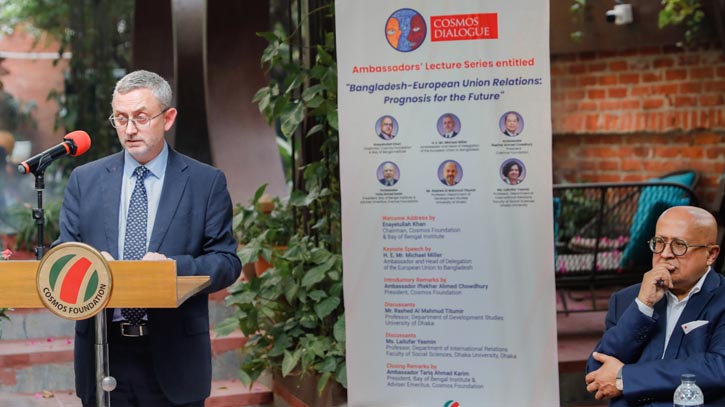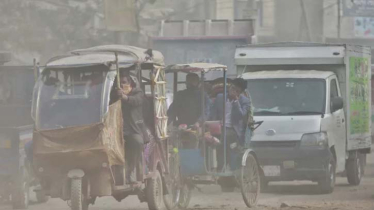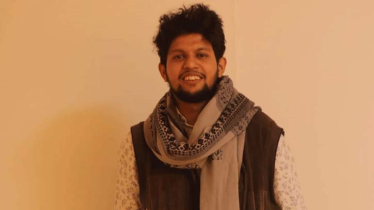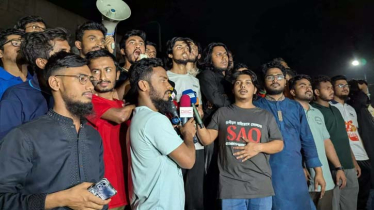
Photo: Collected
Ambassador and Head of Delegation of the European Union (EU) to Bangladesh Michael Miller has said they want to see Bangladesh successfully transition "from autocracy to democracy" and become a like-minded partner in international organisations. "We want your transition to succeed. We need things to move on quickly, and we are here to work with you. We are here as the European Union offering partnership expertise, investment and consistency," he said, adding that they want to see Bangladesh 2.0 emerge and want to be Bangladesh's consistent partner well beyond the lifetime of this interim government.
Ambassador Miller made the remarks while delivering his keynote speech on "Bangladesh-European Union Relations: Prognosis for the Future." Cosmos Foundation, the philanthropic arm of the Cosmos Group, in collaboration with the Bay of Bengal Institute organized the dialogue as part of Ambassadors' lecture series under the Cosmos Dialogue on Monday evening.
He elaborated why they want to support all the reform ambitions of the interim government. The Ambassador said it is extremely important for them to pursue this relationship to the maximum and they need to also ensure that there is respect for fundamental rights, there is due process in this country, the rule of law is upheld, and those rights apply to everyone, without exception.
"Human rights are for all. They're not European, they're universal, and they apply to your citizens as well as to our citizens. And it is important now that this stability in terms of politics in your country is reflected in the reality; everyone has a right to due process. People should not be in jail unless they are held on credible charges of criminal offenses and so on and so forth," Ambassador Miller said.
Chairman of Cosmos Foundation and Bay of Bengal Institute Enayetullah Khan delivered the opening remarks while the session was chaired by Dr Iftekhar Ahmed Chowdhury, a renowned scholar-diplomat and former Adviser on Foreign Affairs of Bangladesh Caretaker Government.
President of Bay of Bengal Institute and Honorary Adviser Emeritus, Cosmos Foundation Ambassador (Retd) Tariq A Karim, Dhaka University Prof at Department of Development Studies Rashed Al Mahmud Titumir, Prof at Department of International Relations, University of Dhaka Dr Lailufar Yasmin; Cosmos Group DMD and Honorary Consul of Ireland in Bangladesh Masud Khan and Cosmos Foundation Executive Director Nahar Khan, among others.
Members of the diplomatic corps and distinguished academicians attended the event. Enayetullah Khan said Bangladesh values its relationship with the EU. "Let us look forward to an era of strategic cooperation, partnership and global engagement. As Bangladesh enters a new era called Bangladesh 2.0, support from the EU will continue to be vital and critical for our future endeavors," he said.
Khan said Bangladesh needs to significantly broaden its current rather poor skill development base to open employment opportunities for the youth.
"As climate change conditions exacerbate further, both sides need to enter into reassessing how we can scramble to slow down, if not halt, the inexorable rise of global warming so that climate-change induced disasters do not do existential damage to our agricultural productivity and water availability situations," he said.
Dr Iftekhar Chowdhury said this is a new kind of relationship that Bangladesh is entering into the European Union. "I hope it is a successful cooperation. It is something that we have to do - for us - for Bangladesh's graduation - this is a hill to climb," he said, adding that when there is a hill to climb, do not think that waiting will make it smaller.
Noting that Bangladesh is now on the threshold of graduation, Dr Iftekhar said it will impose a new kind of relationship with the European Union. "New kind of relationship across values - the values which the EU itself is probably struggling to preserve," he added.
Ambassador Tariq Karim said, "We are today in a state of transition, even Europe today is in a state of transition. The world today is in a state of transition." He said none of them is very sure where this transition is going to lead to.
"You are perhaps in the process of redefining yourself from what you were 80 years ago, and that is an unsettling thought, because that will have ramifications nearer to us and even perhaps in our own homes," Tariq Karim said, adding that, "And I think the path that you have shown is the path we should be considering."
Climate Resilience and Green Industrialisation. Prof Titumir said with climate change posing an existential threat, Bangladesh and the EU must deepen cooperation on climate adaptation and mitigation.
He said the EU must enhance long-term climate financing commitments for Bangladesh under the Just Energy Transition framework. Prof Titumir said the Bangladesh-EU relationship stands at a crucial juncture and by working together, Bangladesh and the EU can shape a future that is economically robust, socially just, environmentally sustainable and geopolitically resilient.
"Let us seize this moment to craft a new era of partnership-one that serves our people, our economies, and our shared vision for a better world," he said. Prof Lailufar Yasmin said Bangladesh's relationship with the EU is a solid partnership that they can trust and forge ahead on the basis of a lot of issues and commonalities.
She highlighted several areas - politics, economy, social development and environment, and laid emphasis on cooperation in developing the capacity of Bangladesh.
The foreign affairs expert flagged the Rohingya issue, noting that Bangladesh is going to face challenges of funding in the coming years and how the European Union can create Bangladesh's capacity to sort of provide opportunities for the Rohingyas.
"We can counter disinformation and misinformation against Bangladesh's transition to a more inclusive journey," Prof Lailufar said.
Ambassador Miller said what is predictable at this moment is that almost everything is unpredictable, and they see a moment of transition in Bangladesh and in the European Union as well. "There are challenges and opportunities that come with this moment of transition."
He explained five things, elaborating the EU's role here, why they are here, their political ambition and why they are supporting the reform ambitions of the interim government.
"So first, I want to tell you that the EU-Bangladesh partnership is a strategic choice. This is a partnership which is a strategic choice with respect for rights and the creation of economic opportunity at its core," Ambassador Miller said, adding that the EU is ready to help, in fact, already helping Bangladesh deliver reforms in line with the expectations of Bangladesh's citizens and private sector.
He said they do not have a hidden agenda but their agenda is to ensure that this transition is successful.
The third message is that their common goal with Bangladesh is to build prosperity and to act together to promote sustainable growth with investment and combat climate change, said the EU envoy.
"This is a very cooperative agenda, but I will not hide from you that we have very clear expectations as well - a level playing field for our business in this country," he said.
Sharing his fourth message on the Global Gateway strategy, the Ambassador said the European Union offers to work with Bangladesh to boost smart, clean and secure links here and across the region, in digital energy, transport, also extending to building modern health, education and research ecosystems.
"And the final message that I want to leave you with is that the European Union is listening to you and determined to create the space to listen to young Bangladeshis, civil society and to encourage the authorities to engage with the youth, civil society and the private sector to create the best possible policies looking ahead in this fine country, full of opportunities," he said.
In the same sense, he said, they are determined to create opportunities in Bangladesh and abroad so that its population can thrive. "And this extends to regular, safe and dignified migration, not irregular, unsafe and unmanageable migration," Ambassador Miller added.
On foreign direct investment, he said they have an investment stock here of 2 billion euros. "This is FDI. Frankly, I want to increase that FDI tenfold so that it matches the commercial relationship. It's my ambition but it's maybe difficult."
He highlighted the importance of diversification and ways of boosting trade and investment as there is already an excellent foundation on which to build. "It is now important to explore how we can ensure that your economic base is diversified."
On renewable energy, Ambassador Miller said Bangladesh needs more ambition. "Without the political ambition, you will not succeed in your green energy transition. We actually want to prioritise an engagement with Bangladesh."
END/UNB/MK/SAM/1435 hrs
Messenger/JRTarek








